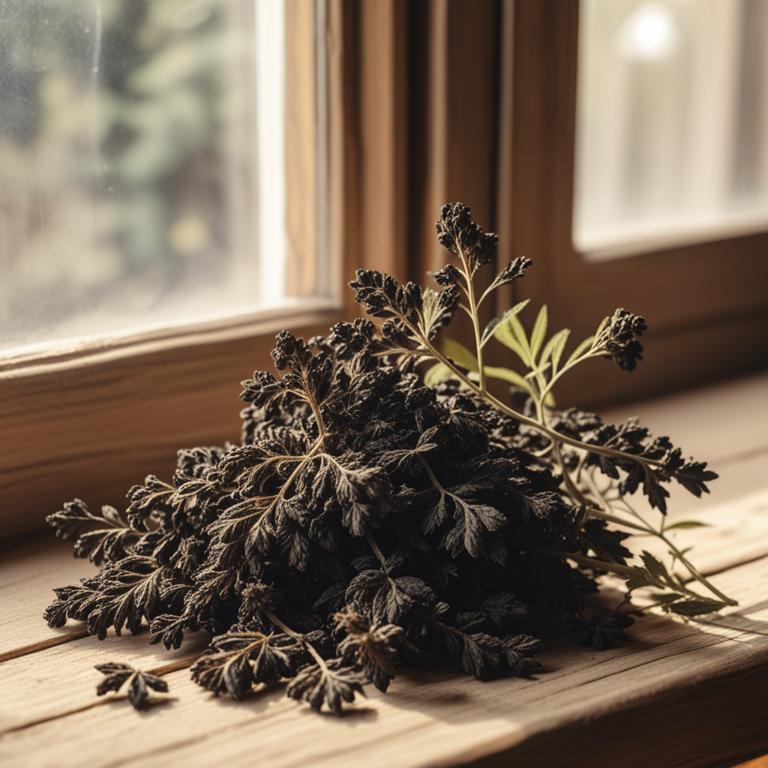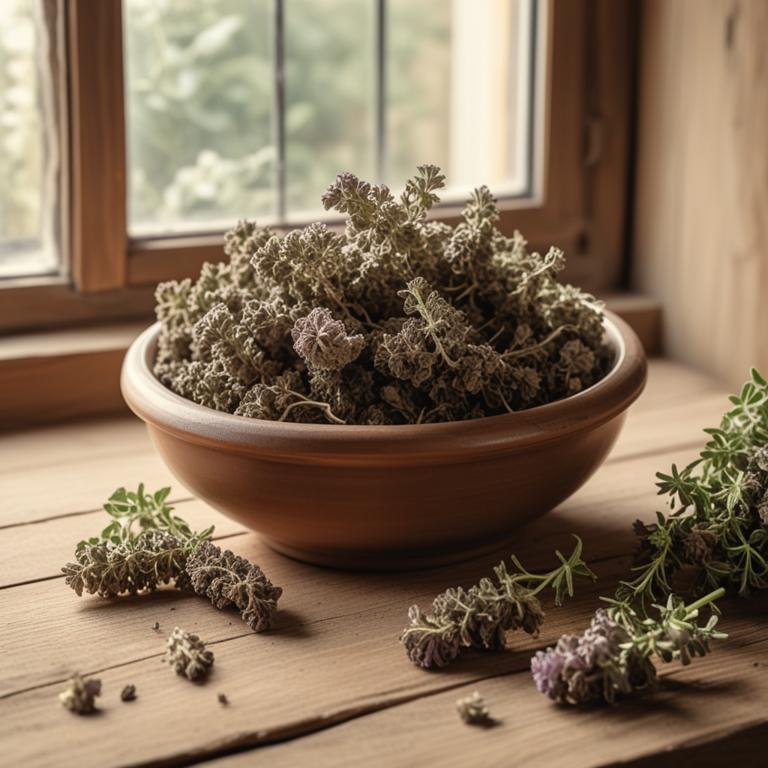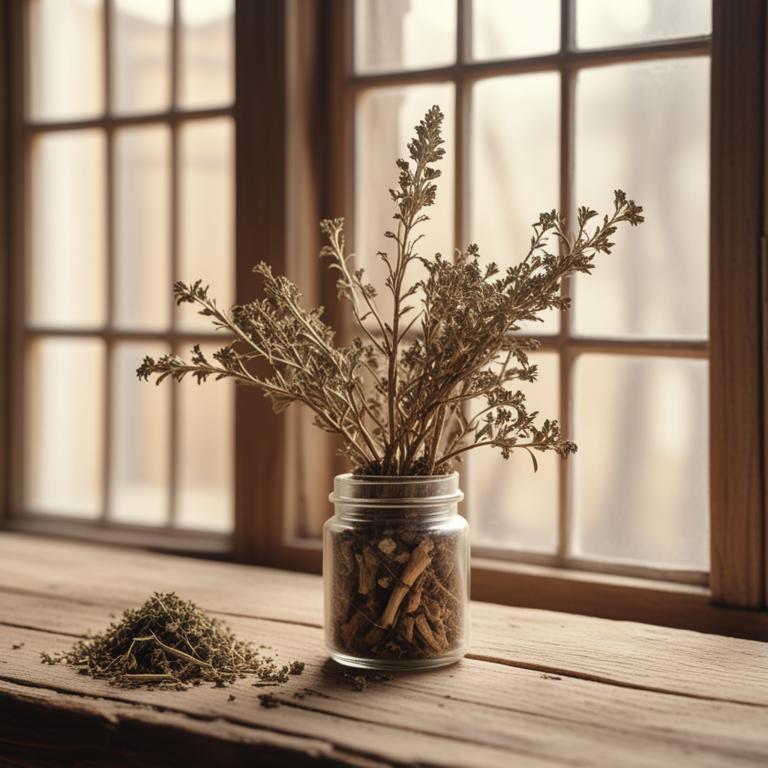Updated: Dec 1, 2024
Cough Causes and Natural Cures: The Power of Herbal Preparations
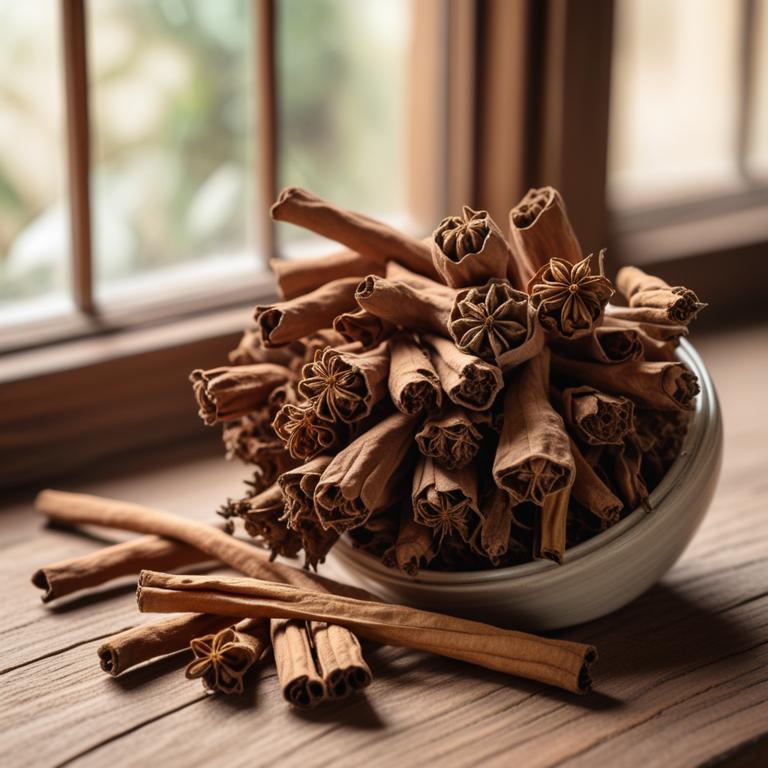
A cough is a natural reflex of the body to remove irritants from the airways.
When you have a cough, it can be really annoying and disrupt your daily life. It can make it hard to sleep, eat, and even talk. Sometimes, a cough can be a symptom of a cold or flu, but it can also be caused by allergies, asthma, or even acid reflux. The causes of cough can vary from person to person, but often it's due to inflammation or irritation in the throat or lungs. When you breathe in dust, smoke, or pollen, it can trigger a cough. Even eating spicy food or drinking too much coffee can irritate your throat and make you cough.
There are some healing herbs that can help soothe a cough. Slender mullein, thyme, and licorice root have natural anti-inflammatory properties that can calm the airways and reduce inflammation. Marshmallow root and slippery elm can also coat the throat and protect it from further irritation. You can use these herbs in various ways to get relief from a cough. Drinking herbal teas, such as a thyme and honey tea, can be really comforting and help calm your throat. You can also try making a cough syrup with licorice root and honey, or add a few drops of mullein oil to your bathwater to help relax your airways.
Additionally, you can try making a cough powder with dried herbs like thyme and marshmallow root, which you can mix with honey to create a soothing cough drop.
Table of Contents
What triggers a cough?
The main causes of cough are a mixture of underlying health issues and temporary conditions.
Acid Reflux, also known as Gastroesophageal Reflux Disease (GERD), occurs when stomach acid flows back into the throat, irritating the esophagus and triggering a cough. Asthma is another common cause of cough, where the airways in the lungs become inflamed and constricted, causing the muscles around the airways to tighten and produce mucus, leading to a cough.
Bronchitis, which can be acute or chronic, is an inflammation of the lining of the bronchial tubes, making them swollen and producing excess mucus, resulting in a persistent cough. The Common Cold is one of the most common causes of cough, caused by a viral infection that affects the upper respiratory tract, producing mucus and triggering a cough.
COPD (Chronic Obstructive Pulmonary Disease) is a long-term lung condition that makes it hard to breathe, causing inflammation and scarring in the lungs, which can lead to a persistent cough.
What are the advantages of using herbs for a cough?
Using herbs to soothe a cough can be really helpful.
One of the main benefits is that they are natural, so you don't have to worry about harsh chemicals affecting your body. These herbs often have anti-inflammatory properties, which can help reduce swelling in your throat and make it easier to breathe. Some herbs are also antiviral, meaning they can help fight off the underlying infection that's causing your cough.
As a result, you might experience faster relief and a shorter recovery time. Additionally, many herbs are versatile and can be used in a variety of ways, such as making a tea, adding to a warm bath, or inhaling their vapors through steam. This makes it easy to incorporate them into your daily routine and find a method that works best for you.
Some herbs may also have antibacterial properties, which can help prevent the spread of infection and promote a healthy environment in your body.
What are the key medicinal herbs for cough relief?

When you have a cough, it can be really frustrating and uncomfortable.
But did you know that certain herbs can help soothe your throat and calm your cough?. One of these herbs is Echinacea purpurea, which is known for its immune-boosting properties. It helps your body fight off infections that can cause a cough, so you can feel better faster. Another herb that can help with a cough is Glycyrrhiza glabra, also known as licorice root. It has anti-inflammatory properties, which can reduce the swelling in your throat and make it easier to swallow. This can be especially helpful if you have a sore throat. For a more immediate relief from a cough, you might want to try Zingiber officinale, or ginger. Ginger has natural anti-inflammatory compounds that can help reduce congestion and ease a sore throat.
It also has a soothing effect on the digestive system, which can help calm a cough. If you're experiencing a dry, hacking cough, you might find some relief with Eucalyptus globulus. This herb has natural decongestant properties that can help clear out mucus and make it easier to breathe. It's often used in cough medicines and inhalers, and it can be really effective at relieving a cough. Finally, there's Thymus vulgaris, or thyme. This herb has antimicrobial properties that can help fight off infections that can cause a cough. It's also a natural expectorant, which means it can help loosen and clear out mucus from your lungs. All of these herbs can be used in different ways, such as teas, capsules, or topical ointments. They can be used individually or in combination to help alleviate a cough.
Just remember to talk to your doctor before trying any new herbs, especially if you have any underlying health conditions or allergies.
What are the most widely used herbal preparations for cough remedy?

Herbal preparations are great for soothing a cough because they come in different forms to suit different needs.
A decoction is a strong liquid made by boiling herbs in water, which is perfect for thick, stubborn coughs. It's like a hot, nourishing drink that calms the throat and loosens mucus. An infusion, on the other hand, is a weak liquid made by steeping herbs in water, which is great for mild coughs or when you want to drink a lot of it without getting too much of a strong taste.
Tinctures are concentrated liquid extracts of herbs that are usually taken in small amounts, making them ideal for severe coughs or when you need a quick fix. Capsules are herbal extracts in a convenient pill form, which is great for people who don't like taking liquids or have trouble swallowing. And then there's tea, which is a weak liquid made by steeping herbs in hot water, similar to an infusion, but often more flavorful and enjoyable to drink. All these forms can help relieve a cough by using the medicinal properties of herbs to calm the throat, loosen mucus, and reduce inflammation.
For example, thyme tea is good for coughs because thyme has antibacterial properties that kill off germs causing the cough, while ginger decoction is good for coughs because ginger has anti-inflammatory properties that reduce swelling in the throat.
Additional Resources:
Should you avoid any particular herbs if you have a cough?
If you have a cough, it's best to be careful with certain herbs.
Cinchona officinalis, also known as the Peruvian bark, is often used to treat fever, but it can also cause stomach problems and make your cough worse. This is because it contains quinine, a compound that can irritate your stomach and make digestion difficult. Hydrastis canadensis, or goldenseal, is another herb that you might want to avoid if you have a cough. It can help with congestion, but it also has a compound called berberine, which can raise your blood pressure and make your cough worse. If you already have high blood pressure, using goldenseal could be particularly problematic. Digitalis purpurea, or foxglove, is often used to treat heart problems, but it's not safe for people with coughs.
This is because it contains a compound called digoxin, which can slow down your heart rate and make breathing more difficult. If you have a cough and use foxglove, you could be putting yourself at risk of serious complications. Taxus baccata, or yew, is another herb that's best avoided if you have a cough. It contains a compound called taxine, which can be toxic and cause serious problems if ingested. Using yew for medicinal purposes can be particularly hazardous, as it can cause vomiting, diarrhea, and even heart problems. Sanguinaria canadensis, or bloodroot, is often used to treat skin problems, but it's not safe for people with coughs. This is because it contains a compound called sanguinarine, which can be toxic and cause serious problems if ingested.
If you have a cough and use bloodroot, you could be putting yourself at risk of serious complications, including vomiting, diarrhea, and even liver damage.
FAQ
Are there any specific herbs that can prevent cough?
Ginger and thyme are often used to help soothe a cough.
Ginger has anti-inflammatory properties that can reduce swelling in the throat, while thyme contains compounds that can calm a cough.
Drinking tea made from these herbs may provide relief from a persistent cough, allowing you to breathe easier and feel more comfortable.
Is it safe to use herbal remedies for cough during pregnancy?
Using herbal remedies for a cough during pregnancy can be tricky.
Some herbs are safe, but others might not be good for the baby. For example, peppermint and ginger are often okay, but slippery elm and comfrey are usually avoided because they can affect the baby's growth.
It's best to choose herbs that are well-known to be safe.
Are there any herbs that can reduce the frequency of cough?
Ginger and thyme are herbs that may help reduce the frequency of cough.
Ginger's natural anti-inflammatory properties can soothe a sore throat, while thyme's antiseptic qualities can help combat infections that cause coughing.
Drinking tea made with these herbs may provide relief, but it's essential to try them in moderation.
Can i combine different herbal remedies for cough?
Yes, you can combine different herbal remedies for cough, but be cautious.
Some herbs may interact or have side effects when mixed. For example, combining thyme and eucalyptus may help relieve a cough, but combining thyme with licorice root could be problematic.
Always check the ingredients and instructions before mixing different remedies.
Related Articles

Tickling Throat Remedies: Causes, Medicinal Herbs, and Herbal Preparations for Sore Throat
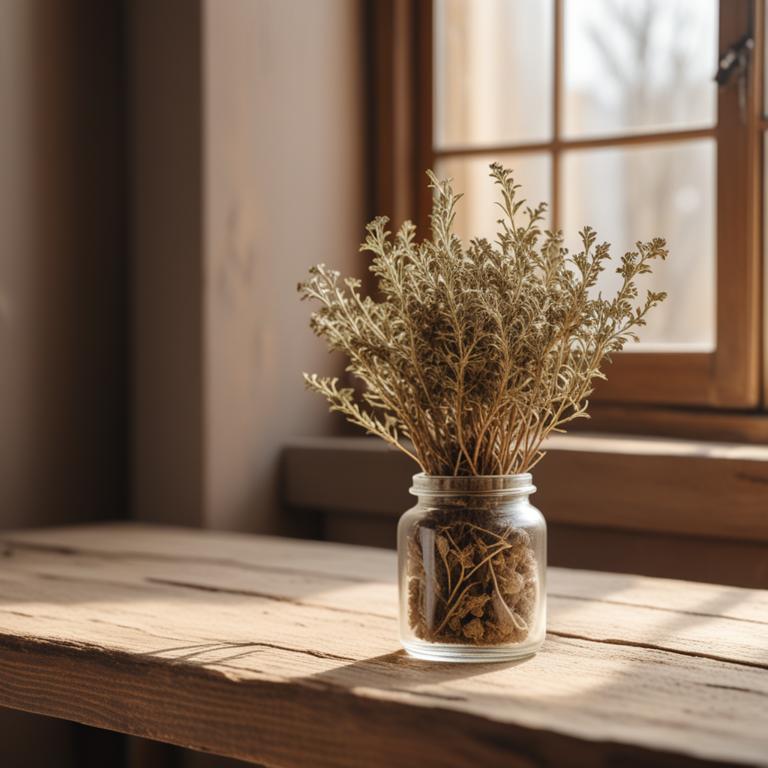
Throat Redness Causes, Remedies with Medicinal Herbs and Herbal Preparations
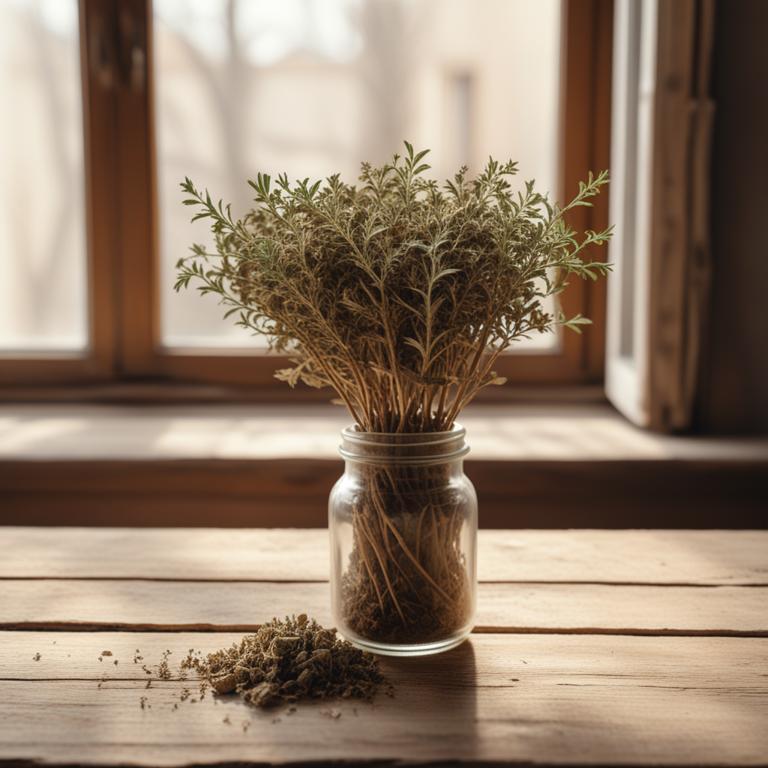
Banish Dry Throat: Exploring Medicinal Herbs and Herbal Preparations for a Soothing Solution

Pertussis: Causes, Symptoms, and Natural Remedies with Medicinal Herbs
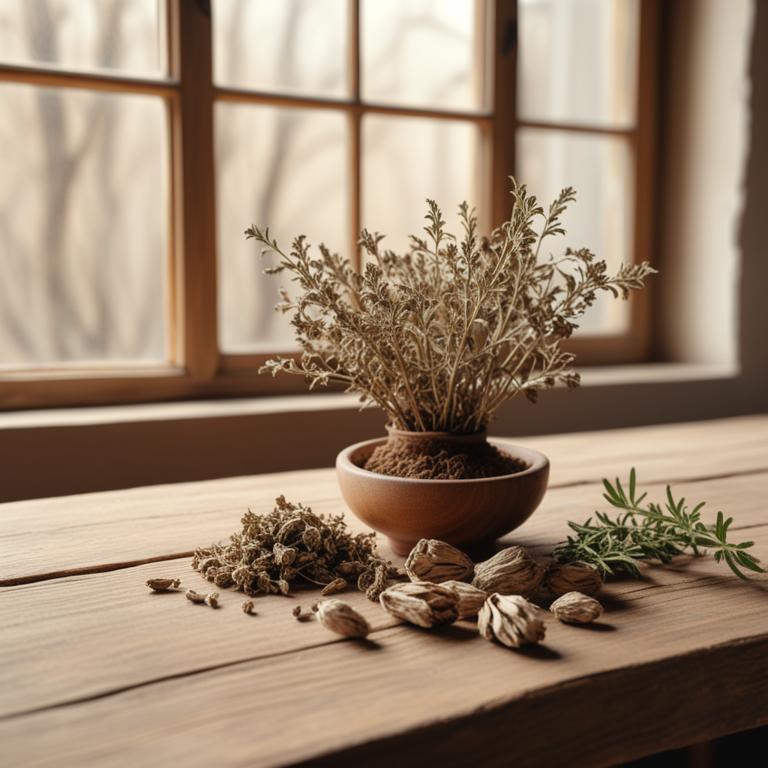
Sore Throat Causes, Herbal Cures, and Medicinal Plant Remedies
